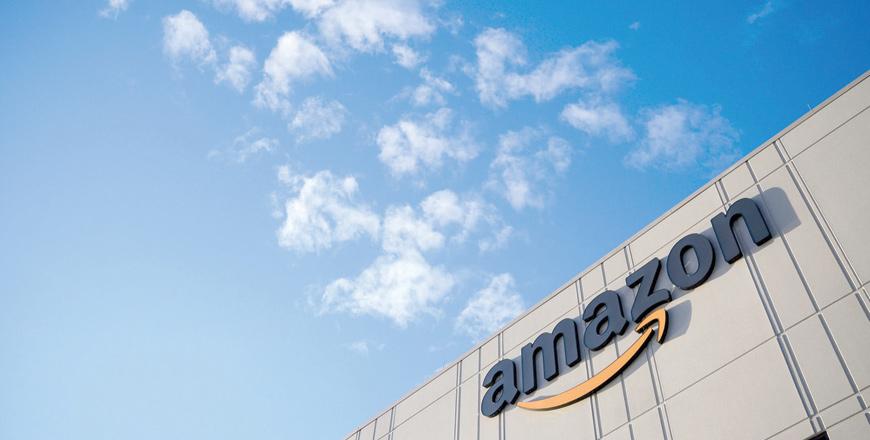Some businesses thrive, others ache during pandemic

AFP
PARIS — The coronavirus pandemic initially brought the global economy to a halt but business adjusted, with the more nimble taking advantage of the move online while others struggle to find a way forward.
Here are some of the economic winners and losers of the COVID era so far:
Amazon, online champion
Lockdowns, curfews and travel restrictions all seemed to play to the strengths of Amazon, which pioneered the transition to online retail.
The company headed by Jeff Bezos, who started out selling books and losing massive amounts of money, seemed perfectly suited to the changed times as bored and anxious consumers confined to their homes stocked up.
The results were stunning — a 40 per cent increase in sales to $387 billion dollars last year.
Food delivery
The home food delivery business also came of age as people dined-in instead of out, with restaurants and bars either restricted or closed completely.
Anglo-Dutch group Just Eat Takeaway saw its revenues soar 54 per cent to 2.4 billion euros while British competitor Deliveroo jumped 64 per cent to 4.1 billion pounds.
Entertainment
What else is there to do if one cannot go out except slump on the sofa to watch television and play video games while munching on your latest dine-in delight?
With the cinema out of bounds, the home-based version took off big time, with Netflix building an audience of 200 million on an offer of high-class films and series typified by "The Crown", the story of Britain's Queen Elizabeth II.
Disney, not to be left behind, launched its Disney+ service late 2019 and had 95 million subscribers by early 2021.
Among the game makers, Sony and Microsoft launched new consoles and ramped up sales.
Families also played more classic games, with Danish toy brick maker Lego enjoying a new lease of life in helping keep children — and adults — amused and busy for long periods of time.
The family-owned business chalked up a 19 per cent rise in net profit to a record 1.3 billion euros last year.
Airlines, tourism ache
Air transport was probably the worst hit sector, with thousands of aircraft mothballed worldwide.
Predictions for a return to a semblance of normality have progressively been put back, with industry groups now looking to 2023 or even 2024.
Legacy flag carriers such as Air France and Lufthansa chalked up huge losses — of 7.1 billion euros and 6.7 billion euros respectively — and required huge state bailouts to keep them going.
The low-cost operators such as EasyJet and Ryanair adapted faster than their older peers but could not escape the impact of the near total collapse of air travel.
Ryanair's Michael O'Leary lambasted governments for bailing out the older carriers he believes do not deserve to be in business and he insisted the crisis was also an opportunity to finally restructure the industry.
According to the International Air Travel Association, airlines lost some $118 billion last year and while there is great hope vaccination programmes will make a difference this year, losses are still expected at $38 billion.
Oil majors
suffer, recover
With the global economy stalled in the second quarter last year at the height of the first pandemic wave, oil prices fell off a cliff, even turning negative at one point.
But production cuts, supported by non-OPEC producers such as Russia, slowly helped steady the market and prices began to rise on hopes for a strong economic recovery this year.
That was not enough however to stop the five majors — BP, Chevron, ExxonMobil, Shell and Total — from chalking up combined 2020 losses of $77 billion.
Oil prices so far this year have been well supported, flirting with $70 a barrel in recent trade on the hope massive stimulus packages, especially in the US, will support demand.
Latest News
 'Sinwar Above Ground': Hamas official's revelation shocks Israeli Occupation
'Sinwar Above Ground': Hamas official's revelation shocks Israeli Occupation US president signs bill to provide new aid for Ukraine
US president signs bill to provide new aid for Ukraine Prime minister directs government to support IEC ahead of upcoming elections
Prime minister directs government to support IEC ahead of upcoming elections Parliamentary elections for 20th Lower House to be held on September 10 – IEC
Parliamentary elections for 20th Lower House to be held on September 10 – IEC Amman Chamber of Commerce says GDP grows by 4.4% in 2023
Amman Chamber of Commerce says GDP grows by 4.4% in 2023
Most Read Articles
- More than 100 arrested at US university pro-Palestinian protests
- King, French president discuss regional developments
- Senior Hamas official says movement is “awaiting response” in ceasefire negotiations
- Irish foreign minister visits Palestinian refugee camp in Amman, vows support to UNRWA
- Jordan remembers Queen Zein
- Ahead of feared Rafah invasion, Palestinians mourn bombardment dead
- US says downed Houthi anti-ship missile, four drones
- JAF carries out six more airdrops of aid into Gaza
- Cassation Court upholds over 3-year sentence for drug dealer
- Hizbollah denies Israel claim it killed half of commanders in south